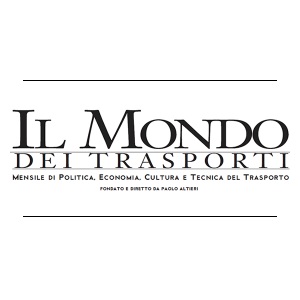Last week, on 14 February, the European Commission proposed the following new CO2 emission reduction targets, compared to 2019 levels, for commercial vehicles:
1- Emissions reduced by 45% starting from 2030;
2- Emissions reduced by 65% starting from 2035;
3- Emissions reduced by 90% starting from 2040.
The President of the Industrial Vehicles Section of UNRAE, Paolo A. Starace (in the photo), commented on the new proposal presented by the Brussels executive as follows: “All the manufacturers of industrial vehicles have already embraced the ecological transition for some time and have supported over the years huge investments for the development of increasingly environmentally friendly and safe vehicles. The manufacturers are therefore ready for the challenge and aware that our sector must contribute, like all the others, to reducing climate-changing emissions. Although the objectives are very ambitious, we are aware that the road has already been traced. The CO2 emissions of newly registered vehicles are, in fact, subjected to strict measurements at European level and, if the already existing objective of a 15% reduction by 2025 is not respected (compared to the values issued in 2019), the Commission will impose huge fines on manufacturers, amounting to €4,250/gCO2/tKm for excess CO2 emissions”.
In any case, UNRAE believes that the emissions reduction objectives can be achieved through a mix of technological solutions, including electric and hydrogen engines and the use of biofuels compatible with Euro 6/VI endothermic engines in circulation.
Starace, in continuing his analysis, expressly states: “Manufacturers already produce and deliver electric industrial vehicles with an autonomy of over 500 km. There are also ecologically valid solutions to continue exploiting the latest generation endothermic engines, such as for example the use of biofuels, including HVO biodiesel, which reduce CO2 emissions by up to 95% compared to traditional diesel or solutions already in advanced state of experimentation with zero emissions such as the use of hydrogen on combustion engines”.
In analyzing the European proposals, the President of the Section also drew attention to the latest decision regarding the Euro 7 Regulation: “In the light of the above, we consider
therefore a strategic mistake was the abandonment of the latest generation Euro 6/VI endothermic engine technology which, thanks to research and development, provides promising levels of emissions reduction in the future. Furthermore, it is inconsistent to request further inventions in favor of Euro 7 engines, forcing manufacturers to invest in a technology that will be largely replaced in the near future, diverting huge resources from the development of other solutions. Lastly, it should not be forgotten that in order to consistently reduce emissions from heavy transport and speed up the adoption of new technologies, decisive measures will have to be put in place to remove old vehicles from circulation and thus rejuvenate the Italian fleet, which is currently has an average age of 14.3 years, with 54.6% of vehicles pre-Euro V. In conclusion, we believe that the timescales outlined by the EU Commission are stringent, but achievable only if it is implemented by the Government in the next few years an agenda that will effectively support the sector’s energy transition. In fact, the adoption of new vehicles with zero-emission technologies is currently very limited in Italy because it is not suitably supported by suitable recharging and distribution infrastructures and by adequately parameterised incentives. Therefore, we hope that Italian policies will speed up so that the efforts made so far by manufacturers are not thwarted and national hauliers are not relegated to playing a marginal role in the international movement of goods”.
